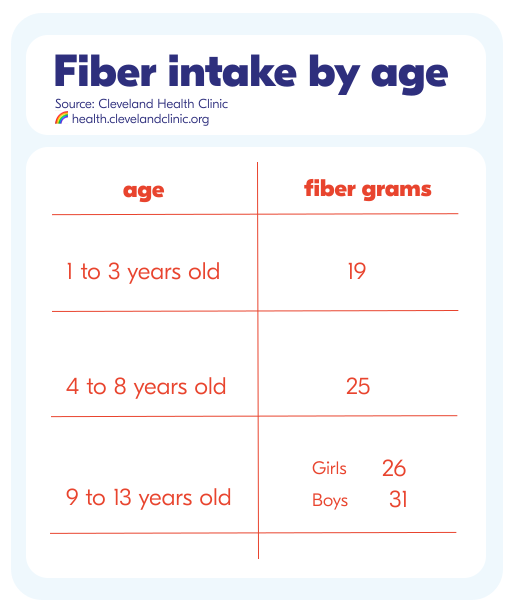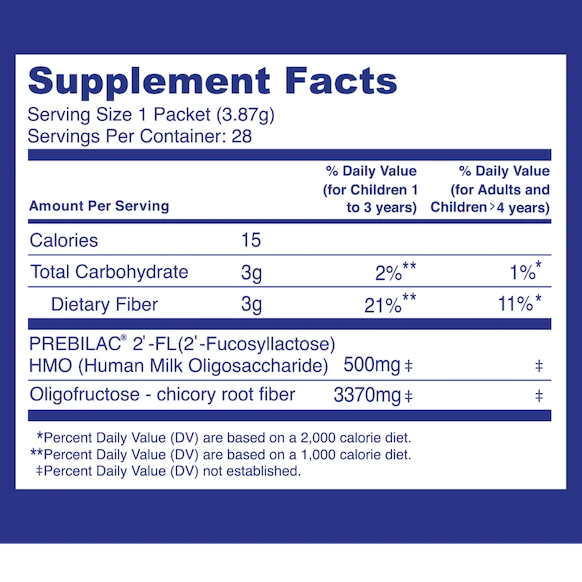-
The gut microbiome refers to the collection of microorganisms that inhabit the human gastrointestinal tract, including bacteria, viruses, fungi, and other microbes. These microorganisms play important roles in digestion, nutrient absorption, immune system function, and other aspects of human health.
General
-
The gut microbiome is a complex ecosystem that plays an essential role in human health. Maintaining a healthy gut microbiome through diet, lifestyle, and potentially even targeted probiotic or prebiotic interventions is an important aspect of overall health and well-being.
-
Recent research has suggested that the gut microbiome may play a role in mental health and cognitive function. The gut and the brain are connected through the vagus nerve, and some studies have found that certain gut bacteria can produce neurotransmitters that affect mood and behavior. How cool!
-
Prebiotics and probiotics are two different types of dietary supplements that can promote general gut health.
Probiotics are the live bacteria and yeasts that are beneficial to the digestive system. They are found in foods such as yogurt, kiefer, and fermented foods such as sauerkraut and kimchi. Probiotics work by colonizing the gut with beneficial bacteria that can support digestion and immune function.
Prebiotics are non-digestible fibers that promote the growth of beneficial bacteria in the gut. They are found in foods such as chicory root, onions, garlic, asparagus, bananas, and Jerusalem artichoke. Prebiotics work by providing food for the beneficial bacteria to help them grow and multiply.
Probiotics and prebiotics are often used in combination to promote a healthy gut microbiome. -
A synbiotic is a combination of probiotics and prebiotics that work together to promote gut health. While the probiotics are the live bacteria that colonize the gut and improves digestion, the prebiotics are the food that nourishes the probiotics allowing the beneficial bacteria to grow and thrive.
-
Dysbiosis refers to an imbalance in the gut microbiome such as an overgrowth of harmful bacteria “unfriendly bugs” or a decrease in beneficial bacteria “friendly bugs”. This imbalance can disrupt the normal functioning of the gut microbiome, leading to a range of health challenges.
Many factors can contribute to gut dysbiosis including a diet high in sugar and processed foods, use of antibiotics or other medications, chronic stress, and other environmental toxins.
Treating gut dysbiosis typically involves a combination of dietary changes, probiotic or prebiotic supplementation, and lifestyle modifications to support a healthy gut microbiome. -
According to the Cleveland Health Clinic, the recommended fiber intake for kids by ages is as demonstrated below 👇

-
Begin Growing Up Prebiotics are made with only two ingredients:
(1) 2’-FL Human Milk Oligosaccharides, a prebiotic with the same molecular structure as the most abundant prebiotic in human breast milk.
(2) Oligofructose chicory root inulin, a prebiotic fiber.
-
While HMO has a molecular structure identical to the prebiotic found in human breast milk, it is not derived from actual human milk. It’s produced through fermentation to replicate the natural benefits of breast milk.
-
Contrary to its name Human Milk Oligosaccharide is not from human milk.
Our Human Milk Oligosaccharide, 2'-FL HMO, is a prebiotic with the same molecular structure as the most abundant prebiotic in human breast milk.
So why does our product say that it contains milk? During our prebiotic fermentation process lactose is a starting ingredient, once fermentation is complete there is a trace amount of lactose left over that is medically considered "vanishingly small". To put this in perspective, an 8oz cup of milk contains 12 grams of lactose, our product contains 4 milligrams, that is 0.3%. That is less than half of a percent of the amount found in a cup of milk.
-
Growing Up Prebiotics does list that it contains milk. If milk isn't an ingredient why do we contain milk? During our prebiotic fermentation process lactose is a starting ingredient, once fermentation is complete there is a trace amount of lactose left over that is medically considered "vanishingly small". To put this in perspective, an 8oz cup of milk contains 12 grams of lactose, our product contains 4 milligrams, that is 0.3%. That is less than half of a percent of the amount found in a cup of milk.
-
Growing Up Prebiotics are GMO-dna free but we are not yet certified Non-GMO.
-
Begin Growing Up Prebiotics are blended and packaged in the U.S.A.
-
Every batch of Begin Growing Up Prebiotics is third party tested.
-
Begin Growing Up Prebiotics is a dietary supplement designed for toddlers and kids ages 1+ and up.
-
Begin Growing Up Prebiotics can be stored at room temperature in a dry place.
Product Details
-
Begin Growing Up Prebiotics are designed for kiddos ages 1 year+
For kids ages 1-3 we recommend up to one serving per day.
For kids ages 4+ and adults, we recommend up to two servings per day. -
Directions
Mix the contents of one (1) packet or (1) scoop into at least 4-6 oz. of fluid such as milk, water or a preferred drink; prebiotic powder may also be easily mixed with yogurt and other foods as part of a snack or meal.
Suggested Use
As a prebiotic supplement for toddlers ages 1yr to 3yrs, we recommend one (1) packet or (1) scoop daily. For kids ages 4yrs and up, we recommend up to two (2) packets or (2) scoops daily, given separately.
During the introductory period, some toddlers and kids may experience small amounts of gas or bloating. We recommend starting with half a packet and gradually reaching the recommended amount over several days. -
For the best results, we encourage consistent use of Growing Up Prebiotics into your little one’s daily routine.
-
Growing Up Prebiotics may be taken at any time. This includes over the course of a day in a water bottle. For the best results, we encourage you to find a time of day that is easiest in establishing a daily and consistent routine for your little one to take the prebiotics.
-
Growing Up Preiobitcs were intentionally formulated to leave out common additives in dietary supplements. This can create a bit of extra effort to dissolve the powder.
We recommend that you mix the powder in a bit of warm or room temperature water before adding to your liquid or beverage of choice.
You may also bake or cook with Growing Up Prebiotics as heat does not impact the efficacy of the product. -
No, it won’t! Since Growing Up Prebiotics only contain prebiotics, the food and nourishment for the probiotics, there is no risk of negatively impacting the efficacy of the powder.
You may bake or cook with Growing Up prebiotics without impacting the efficacy of the product. -
We recommend that you follow our recommended guidelines.
As a prebiotic supplement for toddlers ages 1yr to 3yrs, we recommend one (1) packet or (1) scoop daily. For kids ages 4yrs and up, we recommend up to two (2) packets or (2) scoops daily, given
separately.
We always recommend that you consult your little one’s pediatrician or health care professional if you have additional questions. -
Yes! This is normal with the introduction of any new fiber. We recommend that you start your little one with half a dose over the first couple of days until the new fiber settles in.
-
Growing Up Prebiotics are a tasteless, textureless, fine powder that can easily be mixed into water, juice or a smoothie. We’ve had some of the pickiest eaters on the planet not even notice Growing Up Prebiotics!
-
Yes! So many. We recommend that you try Growing Up Prebiotics in a variety of different formats including blended into a smoothie, baked into pancakes or muffins, included in any meal like oatmeal or mac ‘n cheese or even frozen into ice pops.
Growing Up Prebiotics are not impacted by heat so you can get creative with how you include them into your little one’s routine. -
Yes! We’ve helped thousands of kiddos transition away from daily laxative use. We always recommend that if a laxative is prescribed per your pediatrician that you let them know about your intention to try Growing Up Prebiotics.
Every little one is different and it can take varying amounts of time. Some families see progress within the first couple of weeks using Growing Up Prebiotics and others see progress over several months of routine use.. Most families start using both and find a way to decrease their reliance on laxatives over time.
If you are still using laxatives and Growing Up Prebiotics we recommend that you give them to your little one at different times of the day. -
Sure! Several of the littles that take Growing Up Prebiotics often take multivitamins, or other supplements. We always recommend that you speak with your pediatrician or family health care provider to make sure your little one is on a plan best suited for them.
-
Of course! Several of the littles that take Growing Up Prebiotics often and pair that successfully with a probiotic. Often pre and probiotics can work well together. We always recommend that you speak with your pediatrician or family health care provider to make sure your little one is on a plan best suited for them.
-
Although our label states that Growing Up Prebiotics “contains milk,” the amount of milk in one serving of our prebiotics is considered “vanishingly small.” As a result, it is unlikely to cause any adverse symptoms of intolerance in your little one.
We’ve received many inquiries about this topic, and we want to assure you that we take your little one’s health and well-being very seriously.
For more information, we have included some resources below and a TikTok with more info here.
To take an even deeper drive, we invite you to read either of our two blog posts: we invite you to read more about Using Growing Up Prebiotics with Cow Milk Protein Allergy and Using Growing Up Prebiotics with a Lactose Allergy.
How to use Growing Up Prebiotics
-
Our formulation is made of only two ingredients: 500mg of Human Milk Oligosaccharide (2’-FL HMO) and 3g of chicory root, a plant-based fiber.
There are no other ingredients in Growing Up Prebiotics. We’ve included our Supplement Facts panel for reference below.
-
Contrary to their name Human Milk Oligosaccharides are not made from human milk. Human milk oligosaccharides (HMOs) are complex carbohydrates that are found in human breast milk. They are the third most abundant solid component in human milk after lactose and lipids.
HMOs are not digested by little ones and instead they serve as a prebiotic food source for the beneficial bacteria in the gut microbiome, that promote the growth of these ‘friendly bugs’, such as Bifidobacterium infantis.
HMOs have been found to have other health benefits such as supporting immune health, promoting gut health, and supporting cognitive development.
While HMOs are a prebiotic identical to the molecular structure of the most abundant prebiotic found in mom’s breast milk, our 2’-FL HMO does not contain actual milk from humans. -
Chicory root fiber, also known as inulin or chicory inulin, is a type of dietary fiber derived from the root of the chicory plant (Cichorium intybus). It is a soluble fiber that is often used as a functional ingredient in food, beverages and in dietary supplements. Chicory root fiber is popular as a prebiotic due to its ability to selectively stimulate the growth and activity of beneficial bacteria in the gut, such as bifidobacteria.
-
Our formulation is made of only two ingredients: Human Milk Oligosaccharide (2’-FL HMO) and 3g of chicory root, a plant-based fiber.
Each of our ingredients are sourced from leading global suppliers. Our 2’-FL HMO is manufactured in a leading state of the art facility in Germany, and you may rest assured that it does not come from human milk.
Our chicory root is sourced from one supplier with material that originates from either Belgium or Chile. Our formulation is proudly blended and packaged in the USA. -
Although our label states that Growing Up Prebiotics “contains milk,” the amount of milk in one serving of our prebiotics is considered “vanishingly small.” As a result, it is unlikely to cause any adverse symptoms of intolerance in your little one.
During our prebiotic fermentation process lactose is a starting ingredient, once fermentation is complete there is a trace amount of lactose left over that is medically considered "vanishingly small". To put this in perspective, an 8oz cup of milk contains 12 grams of lactose, our product contains 4 milligrams, that is 0.3%.That is less than half of a percent of the amount found in a cup of milk. -
Growing Up Prebiotics is designed to help with softer stooling (1) and improved friendly bacteria in the gut (2)*. We found that many families see results after one serving, for other families it can take several weeks.
Clinical research on our chicory root fiber demonstrates an increase in stooling frequency, a softer consistency and a decrease in pain, in six weeks with daily consistent use(1).
[1] Ricardo Closa-Monasterolo, Natalia Ferré, Gemma Castillejo-DeVillasante,Veronica Luque, Mariona Gispert-Llaurado, Marta Zaragoza-Jordana, Stephan Theis & Joaquin Escribano (2017) The use of inulin-type fructans improves stool consistency in constipated children. A randomized clinical trial: pilot study, International Journal of Food Sciences and rial: pilot study, International Journal of Food Sciences and Nutrition, 68:5, 587-594, DOI: 10.1080/09637486.2016.1263605
[2] Szimonetta Lohner, Viktória Jakobik, Krisztina Mihályi, Sara Soldi, Sotirios Vasileiadis, Stephan Theis, Manuela Sailer, Carolin Sieland, Károly Berényi, Günther Boehm, Tamás Decsi, Inulin-Type Fructan Supplementation of 3- to 6-Year-Old Children Is Associated with Higher Fecal Bifidobacterium Concentrations and Fewer Febrile Episodes Requiring Medical Attention, The Journal of Nutrition, Volume 148, Issue 8, 2018 -
As a prebiotic supplement for toddlers ages 1yr to 3yrs, we recommend one (1) packet daily. For kids ages 4yrs and up, we recommend up to two (2) packets daily given separately. During the introductory period, some toddlers and kids may experience small amounts of gas or bloating. We recommend starting with half a packet and gradually reaching the recommended amount over several days.
-
It is important to keep well hydrated when taking Begin Growing Up Prebiotics.
-
Yes a toddler or kid may take a prebiotic if they are already taking a probiotic. Always consult your pediatrician if you have questions.
-
Prebiotics can be taken at any time! We recommend forming a daily routine to help you remember to incorporate prebiotics into your toddler or kids’ day.
Ingredients & Benefits
Orders
For more information Orders, Shipping & Returns click here
Disclaimer
While Begin Health may provide information or recommendations, the content provided is for informational purposes only and should not be construed or treated as medical advice. If you or your child is experiencing a health issue or you have questions that are medical in nature, you should consult with your health care provider.














